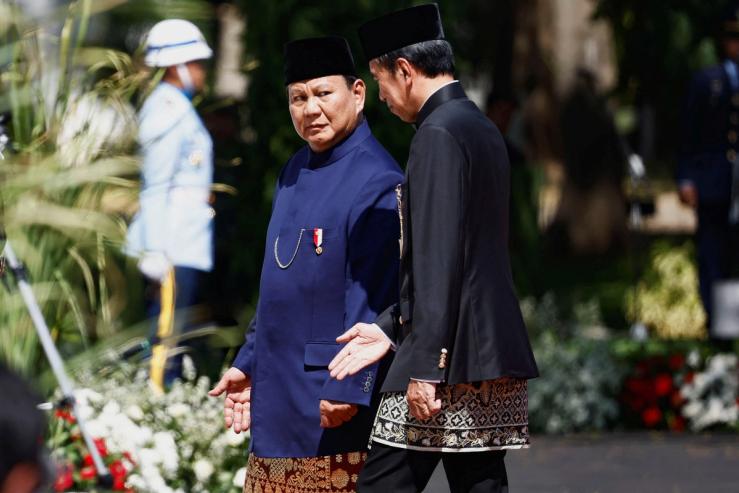The News
Ex-military general Prabowo Subianto was sworn in as Indonesia’s president Sunday, vowing to bring economic change to accelerate growth, as activists warned of democratic backsliding in the Southeast Asian nation.
The 73-year-old was elected in February following a ballot marred by allegations of irregularities and the influence of outgoing president Joko Widodo, who is stepping aside because of term limits, with Jokowi’s son now becoming the vice president.
Prabowo, who served under Indonesia’s brutal dictator Suharto and was blacklisted by the US for two decades over human rights abuses, has sought to soften his image in recent years, frequently being photographed with his cat and appearing in viral dance videos.
SIGNALS
Prabowo’s foreign policy approach is personal and unpredictable
Prabowo could take a more hands-on approach to foreign policy, a contrast with the more domestic-focused Jokowi. Such a “personalistic” approach was on display when Prabowo traveled to meet with world leaders earlier this year after his election, an Indo-Pacific expert noted for the Lowy Institute think tank. In turn, that posture could make his engagement with China unpredictable, they added. “It is likely that Prabowo will maintain openness to Chinese investment… But it will be a relationship determined at the top.” Also unclear is “whether Prabowo will act on his darker tendencies to see the world as a Hobbesian contest, where national power must derive from military power, leading to a tendency to overstate perceived threats,” an expert argued in the South China Morning Post.
Election faced scrutiny over integrity
The recent election was the “worst” for integrity in 25 years, The Jakarta Post said, reinforcing fears that democracy is “backsliding” in Indonesia. The General Elections Commission and the Constitutional Court adjusted their minimum age requirement policies to allow former President Joko’s 36-year-old son to be Prabowo’s running mate, and the “plain implication is that Indonesian constitutional law does not constrain elites seeking to circumvent it,” the Journal of Democracy wrote. Anies Baswedan, another presidential candidate, was reported to election authorities after making comments on a pro-democracy film.
Jokowi leaves a checkered economic, democratic legacy
Jokowi leaves the presidency with widespread popularity and a strong economic record — he has significantly reduced poverty, oversaw sustained economic growth, and improved infrastructure, including the country’s first mass high-speed railway. He also led an effort to move the country’s capital from Jakarta to the new city of Nusantara on another island, a legacy project that has been beset by delays. Yet despite his popularity, Jokowi’s political approach “increasingly veered toward authoritarianism,” Nikkei Asia’s Indonesia correspondent wrote. He has been accused of undermining democracy by bending the country’s laws to install a political dynasty, The New York Times wrote.



